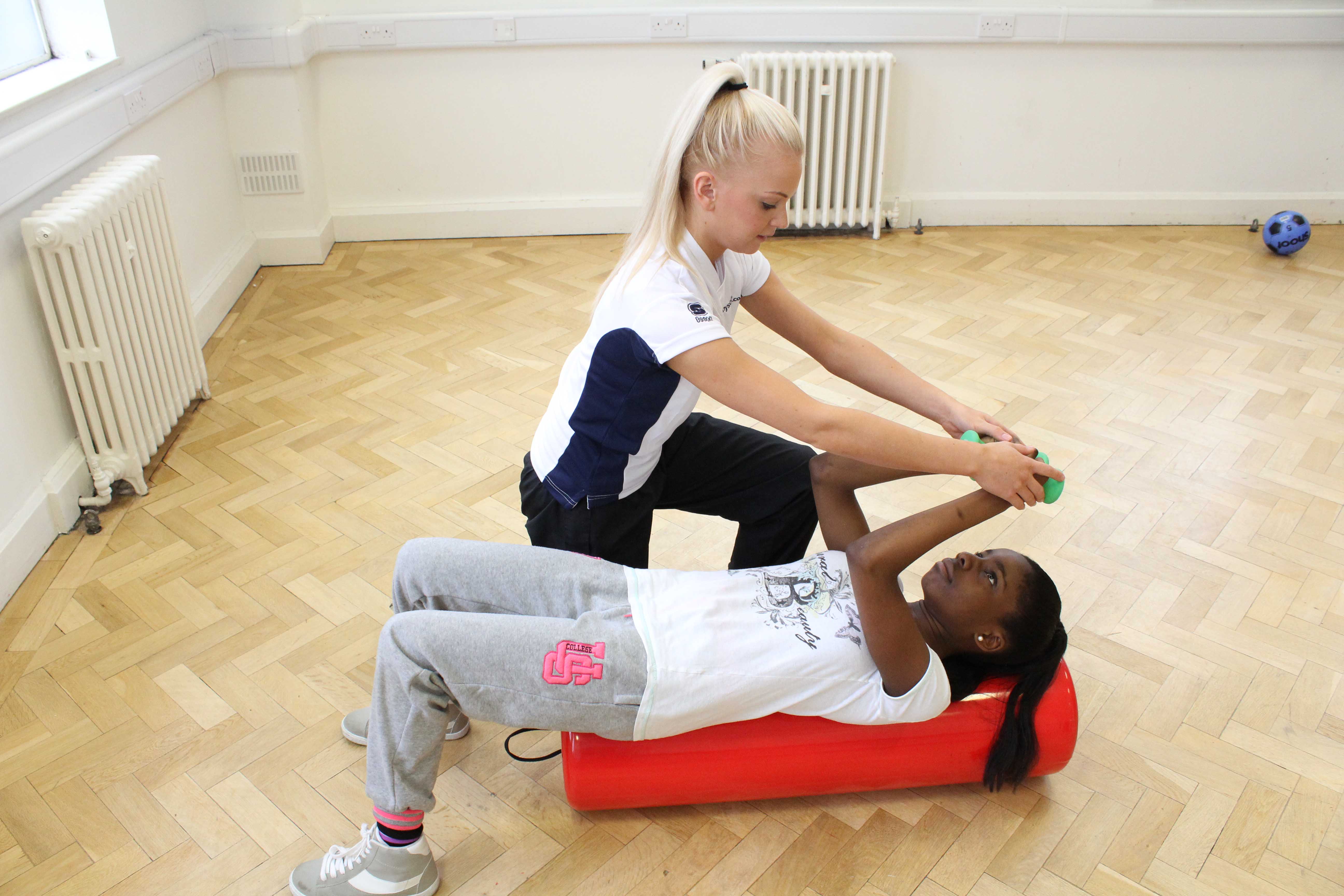What are sensorimotor problems?
Sensorimotor problems affect the interpretation of sensory information and cause difficulties in motor planning and sequencing of movements. Motor planning is the ability to think through a new task requiring body movements and then performing that movement. Sequencing of movements involves breaking down the movement into smaller parts.
 Above: Gross motor skills, proprioception and muscle tone exercises assisted by a paediatric physiotherapist
Above: Gross motor skills, proprioception and muscle tone exercises assisted by a paediatric physiotherapistWhat causes sensorimotor problems?
Sensorimotor problems in children occur due to damage to the part (or parts) of the brain that affect motor planning and sequencing of movements. It can be due to a lack of development or a result of direct damage to the brain.
What conditions display sensorimotor problems?
Various conditions and factors contribute to sensorimotor problems, including:
- Autism and other developmental disorders
- Learning disabilities
- Brain injury
- Genetics
- Fragile X syndrome
What are the symptoms of sensorimotor problems?
Children with sensorimotor problems may show a number of symptoms, including:
- Poor body awareness
- Gait problems (for example toe walking)
- Avoidance of tactile experiences
- Self-stimulating behaviors (e.g. hand flapping, rubbing the hands together, chewing on clothing or skin, rocking) that provide them with additional feedback from their senses.
- Motor co-ordination problems
- Speech and language delays
- Hand-eye coordination difficulties
- Abnormally anxious or emotional
What can physiotherapy do to help sensorimotor problems?
At Physio.co.uk our physiotherapists will assess your child to see what their problems are, and how they are physically affected. Following assessment they will then discuss with you and your child if there is a problem and if so what physiotherapy can do to help. Physiotherapy treatments aim to normalise sensorimotor planning by improving the way the nervous system registers and interprets tactile information. Treatment may involve breaking the movement down into different parts and practising them in isolation. Our physiotherapists can also offer advice to parents regarding strategies and techniques to help manage your child’s problems. They can also recommend appropriate toys and games for your child. Strength and endurance exercises may also be incorporated.
Summary
Sensory motor problems affect sensory information being understood properly, resulting in difficulties with motor planning and sequencing of movements. A number of factors may contribute to sensorimotor problems, such as brain injuries, developmental disorders and genetics. A number of symptoms may be displayed, including avoiding tactile experiences, poor body awareness, and self-stimulating problems. Physiotherapy techniques can help sensorimotor problems.
For more information please call Physio.co.uk on 0330 088 7800.

 0330 088 7800
0330 088 7800

































